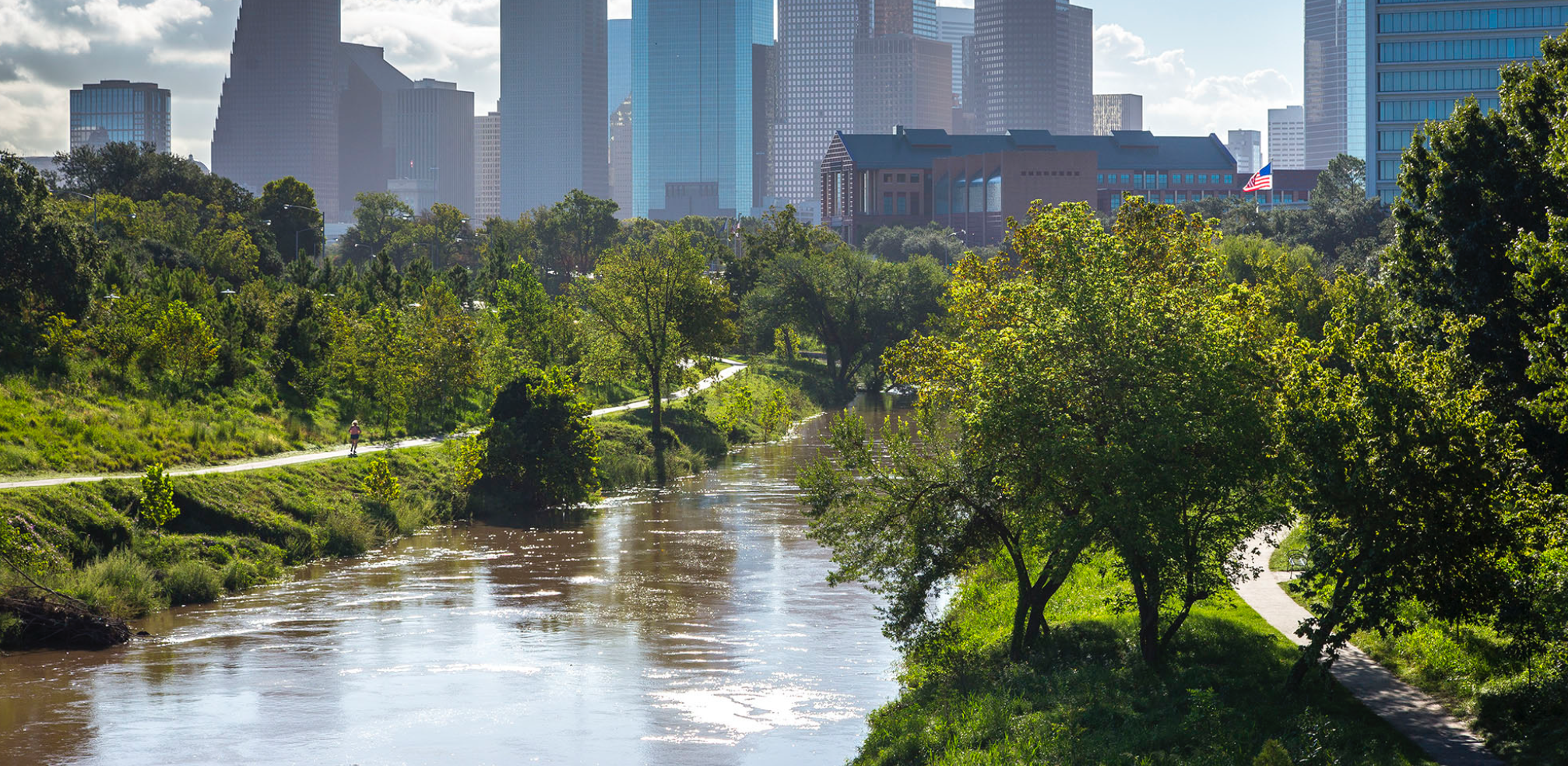New York City's High Line, the nearly 1.5-mile park built atop an old section of elevated rail, has become a touchstone in conversations about public space and equity. Whenever a new ambitious proposal to repurpose old infrastructure for new green space surfaces, the comparisons to the Manhattan park — and the potential for gentrification-driven displacement — aren't far behind. Houston's own blockbuster Bayou Greenways 2020 plan, a public-private partnership that seeks to transform the city's bayous with 150 miles of hike and bike trails, has drawn comparisons with other ambitious projects that both push the design envelope and raise serious equity concerns.
The recently launched High Line Network seeks to offer resources and guidance to cities working on such projects, to avoid repeating the High Line's same missteps. Included in the network, publicly announced this June, are the Bayou Greenways 2020 project, headed by the nonprofit Houston Parks Board, as well as Buffalo Bayou Partnership's 10-mile stretch of projects including Buffalo Bayou Park. Also included: Atlanta's BeltLine, Los Angeles' River LA project and 15 other parks and initiatives across the country.
“The network is not here to make these projects happen; it’s to make them better and to help them change and evolve to the changing needs of our cities,” Robert Hammond, executive director of the High Line, told Co.Design. Hammond describes the network as a way for cities involved in big reimagining of public space to learn from each other to make sure projects intended for the public truly serve the public.
“In this current politically charged environment, parks are the one equalizer," Anne Olson, president of the Buffalo Bayou Parntership told Co.Design. "They are places where people of different views can interact and come together, whether its walking on a trail, attending a program, or volunteering.”
As the partnership turns its attention to the east side of town, it will be working in a very different context, with the historically black Fifth Ward to the north and Hispanic East End to the south. "We’re cognizant of the gentrification happening, and we want to make sure and bring the older residents along," Olson told Houstonia magazine earlier this year.
Inclusion in the national network underscores Houston's rising profile when it comes to parks and public space, as well as its profound challenge to get it right.

